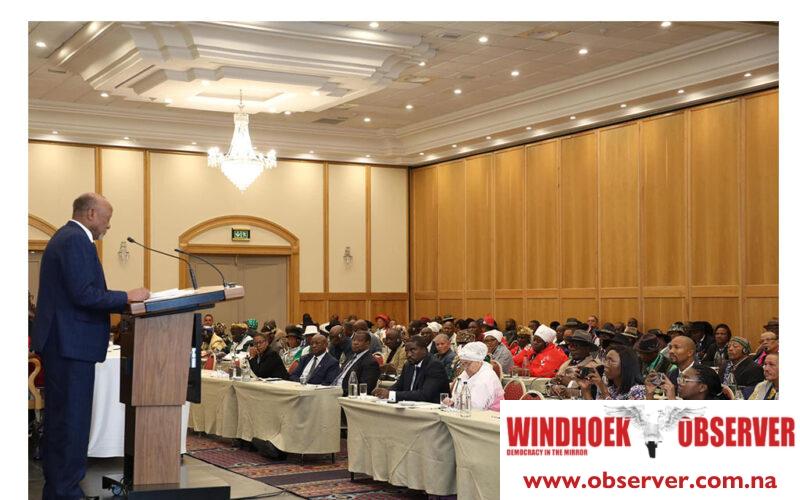Niël Terblanché
As Namibia prepares for the presidential and national assembly elections in November, the role of traditional authorities in promoting national unity and addressing key challenges such as poverty and gender-based violence remains indispensable.
On Monday, the 25th Annual Meeting of Namibia’s Council of Traditional Leaders (CTL) commenced in Windhoek, focusing on unity, development, and maintaining stability as the country heads towards the November elections.
President Nangolo Mbumba officially opened the meeting, acknowledging traditional leaders’ vital role in fostering peace and unity, especially in rural communities.
“The responsibility of our traditional leaders is to uphold traditions while actively participating in the country’s governance and developmental efforts,” he said.
Mbumba reflected on the legacy of past leaders, including the late chief Petrus Ukongo and president Hage Geingob, while stressing the importance of stability and leadership within traditional authorities.
“Traditional leaders are vital in promoting peace and order, particularly in regions where disputes over leadership succession have caused tensions,” he said.
The president cautioned against personal interests overshadowing the greater needs of communities and called for the resolution of disputes through customary laws to avoid diverting resources from critical sectors like education and poverty alleviation.
He said the meeting also coincides with a time of drought, which has severely impacted Namibia’s food security.
The president reiterated the government’s commitment to addressing the drought crisis but stressed the need for unity and prudent use of resources.
Mbumba requests from traditional leaders for new vehicles and urged restraint by saying that even ministers and their deputies were asked to manage with available resources in the face of national challenges.
According to the president, this year’s meeting of the CTL holds particular significance in the political landscape.
“Traditional leaders wield considerable influence in rural communities and often act as intermediaries between the government and the people, making their backing crucial in maintaining political stability,” he said.
The president’s engagement with traditional leaders is aimed at reinforcing support for the November elections in rural areas.
“I encourage our traditional leaders to ensure peaceful elections and to motivate their communities to participate freely and fairly in the democratic process,” he said.
Mbumba pointed to the strong relationship between the government and traditional leaders and added that they are positioned as essential figures in both preserving Namibia’s heritage and contributing to the country’s democratic and developmental aspirations.
He said that the meeting serves as a reminder of the influence that traditional governance continues to hold within Namibia’s broader societal framework.




